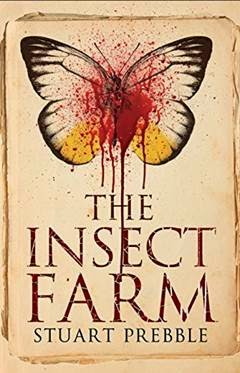 A great many people dream of having a book published, and it’s no wonder they do, because there are a lot of magical moments along the way if you manage to achieve it. Some of them you could easily guess at, like discussing the title with the publisher or seeing your first draft of the cover. And of course there’s no kick quite like being handed the first real-life copy of what will be in the shops.
A great many people dream of having a book published, and it’s no wonder they do, because there are a lot of magical moments along the way if you manage to achieve it. Some of them you could easily guess at, like discussing the title with the publisher or seeing your first draft of the cover. And of course there’s no kick quite like being handed the first real-life copy of what will be in the shops.
All of those you could probably have anticipated, but here’s one I hadn’t really considered before it happened to me recently. It’s the experience of listening to a Book Club discussion about my novel, and hearing people asking questions like “what would Harriet have thought if she had known about........?” or “would Roger have acted differently if he had.......?” In other words, hearing readers speculating about the personalities and behaviour of characters whose entire existence was dreamed up in my head, and whose only incarnation is in the pages I wrote.
That’s a real blast.
I have always been a big believer that no work of fiction in any media can really be successful unless there is some character the audience likes or at least cares about. If you don’t care about the fate of someone, why would you go on reading? So it’s fairly easy to make the reader like Pip from Great Expectations or Hamlet from, well, Hamlet; but just think about the challenge for the producers of a TV drama like Dexter. Their job is to make us like and engage with a blood-thirsty serial killer, even as his activities get him into more and more murky moral territory. And if we aren’t rooting for him at some level, even when innocent people get caught in the cross-fire, the whole premise is lost.
In The Insect Farm, I had the challenge of asking the reader to keep sympathy with a man who drinks himself into a stupor and then kills his beautiful and talented wife with a broken bottle. Then I wanted the reader to go along with him as he seeks to evade justice. Tricky. The extent to which I managed it for a group of highly-literate and highly-smart readers was the subject of a fascinating Book Club discussion, which I enjoyed enormously. These good people were talking about my characters as though they were real people, with real lives and the possibility of behaviour outside of what I had prescribed for them.
I took this as a compliment, and it got me to thinking more about their birth and upbringing (and I do mean the birth and upbringing of my characters, not of the Book Club membership). I remembered how each member of the cast who populates the book popped into my head, one at a time, and how I began to think about what they would do and how they might react in any given circumstance. How might it feel to have an autistic son, and would your main worry be about what will happen to him after you and your partner have died? How would it feel for a woman if her husband was suddenly living 300 miles away and she was flattered by the attentions of an ardent admirer?
I have not, thank God, experienced the personal agony which my hero Jonathan is called upon to endure, of suspecting that his partner is sleeping with another man. So I tried to do what I suppose an actor does when he or she is seeking to portray someone in a given situation. I closed my eyes and imagined it happening, and then tried to turn what I was feeling into words. I imagined what that must be like during the day, when there is other stuff going on, and I wrote the most vivid description I could summon of the sensation. Then I imagined what that feeling might be like in the small hours of the morning when there are no distractions, and wrote a still more painful description of the places my mind went to. By the end, I hope I managed to convey a range of emotions which are so powerful and poignant, that if they led to a drunken rage which culminated in devastating violence, the reader would understand, even if not, of course, condone. Was I successful? I hope so, but of course it’s only the individual reader who can judge.
Some may find that, despite his obvious faults and shortcomings, they like Jonathan and want him to get away with murder. Others may feel suspicious about him, and have reservations about his course of action. Yet others may dislike him intensely, but then I hope their liking for Jonathan’s autistic brother Roger will carry them through the rest of the plot.
In any of these cases, the most gratifying thing for me is that early readers seem to have found themselves able to believe in Jonathan, Harriet and Roger as real people, whose lives I was documenting rather than inventing. My characters came to life in the minds of the readers as well as in my own; and that was a particularly magical aspect of publishing a novel which I had not anticipated.
The Insect Farm, Alma Books, pbk £8.99 March 15, 2015. Buy It.

why married men cheat
link My husband cheated on me
walgreens pharmacy coupons new prescription
maray.nl coupon pharmacy
tretinoin 0.025%
open ventolin pill
free drug coupons
link rx discounts
can i take motrin and tylenol
link can i take motrin and tylenol
how much does it cost for an abortion
click medical abortion pill
manufacturer coupons for prescription drugs
site cialis coupons and discounts
medical abortion pill
akum.org abortion pill price
discount coupons for prescriptions
activeslo.com cialis manufacturer coupon 2016
what is abortion pill
akum.org about abortion pill
naltrexone implant australia
go who can prescribe naltrexone
vivitrol implant
link ldn and fibromyalgia